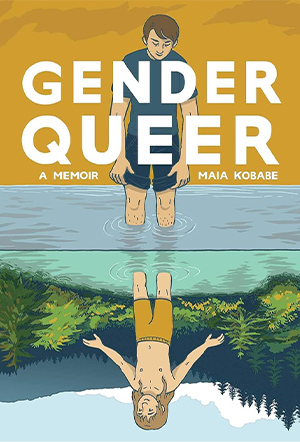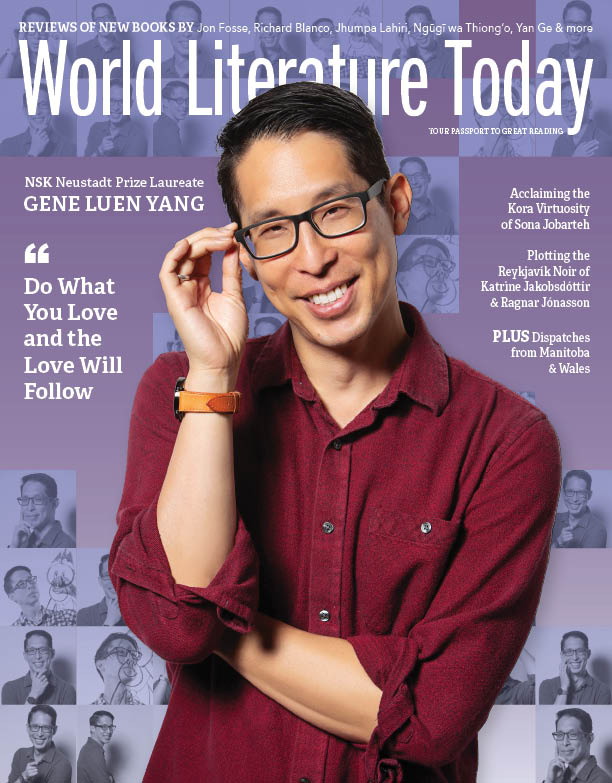Challenged and Banned
 As a tween, I was solely allowed to read whatever was “true”; stories found in nonfiction historical narratives, biographies, zoography, and travelogues. While the emotional truths one finds in fiction were to me of equal value to the objective truth one finds in nonfiction, my parents hoped for me to be solely shaped by objective truth. Truth resists simplicity, however, almost as much as tween me resisted direction, so this enterprise was possibly doomed from the start.
As a tween, I was solely allowed to read whatever was “true”; stories found in nonfiction historical narratives, biographies, zoography, and travelogues. While the emotional truths one finds in fiction were to me of equal value to the objective truth one finds in nonfiction, my parents hoped for me to be solely shaped by objective truth. Truth resists simplicity, however, almost as much as tween me resisted direction, so this enterprise was possibly doomed from the start.
I’ve been reminded of this amid the preponderance of “true” stories being included in the current spate of challenged and banned books in the United States. A surprising number are semi-autobiographical or biographical, depicting a lived experience my parents might have considered “true” and thus acceptable reading back in the day. Data from the Cooperative Children’s Book Center and the American Library Association show a correlation between an increase in representation from marginalized voices and an increase in book challenges and bans. In the following, I highlight stories for young adult readers of lives and experiences from the margins of society that have been challenged and removed from some American schools and libraries.
 Maia Kobabe
Maia Kobabe
Gender Queer: A Memoir
Oni Press, 2019
Maia Kobabe recounted in eir journal, “I don’t want to be a boy. I don’t want to be a girl. I just want to be myself.” The poignant wish reflected in “the most challenged book in the US,” according to data from PEN America, reveals the pressure and confusion so many young adults experience who are unsure why they don’t quite fit in with what is “normal” and “expected.” Maia’s chronicling of eir nonbinary and asexual self within this graphic novel resonates a truth that all of us hope for—that we are all who we are, inherently unique, yet still acceptable, still wholly loveable. While we all are different, we are none of us alone in our differences.
 Ibram X. Kendi & Jason Reynolds
Ibram X. Kendi & Jason Reynolds
Stamped: Racism, Antiracism, and You: A Remix
Little, Brown Books for Young Readers, 2020
In his foreword, Ibram X. Kendi writes frankly that he, African American, scholar, historian, and MacArthur “genius” grant holder, has held racist ideas. He adds, “It’s important to remember that racist ideas are ideas. Anyone can produce them or consume them, as this book shows.” Young adults fearlessly interrogating ideas in the pursuit of truth would be a dream come true for most educators, but this book, in its myriad incarnations, has received near-constant challenges since its publication, being listed among the most banned books in 2020. However, Kendi and Reynolds continue to maintain that antiracism is for everyone, and a frank, history-based discussion of our particular identities and experiences will better inform us of the We the People who we are, and who we might be in the future.
 Ruby Bridges
Ruby Bridges
This Is Your Time
Delacorte Press, 2020
Norman Rockwell’s 1964 painting The Problem We All Live With immortalized a young girl in white being escorted by black-suited federal marshals. Ruby Bridges’s story is as much a part of American history as Rockwell himself, whose fifty-year run of creating culturally relevant covers for the Saturday Evening Post caused readers to sit up and pay attention when this painting was printed. Violent opposition to desegregation is US historical fact, yet this book—and others Bridges has written about her own lived experience—has been challenged in Texas and Florida schools. The idea that we censor a piece of objective history that might make us feel vaguely uncomfortable about our past is a tragic misuse of governance and counter to Bridges’s dream for young readers, which is that they learn the missteps of our history well enough to move past them.











